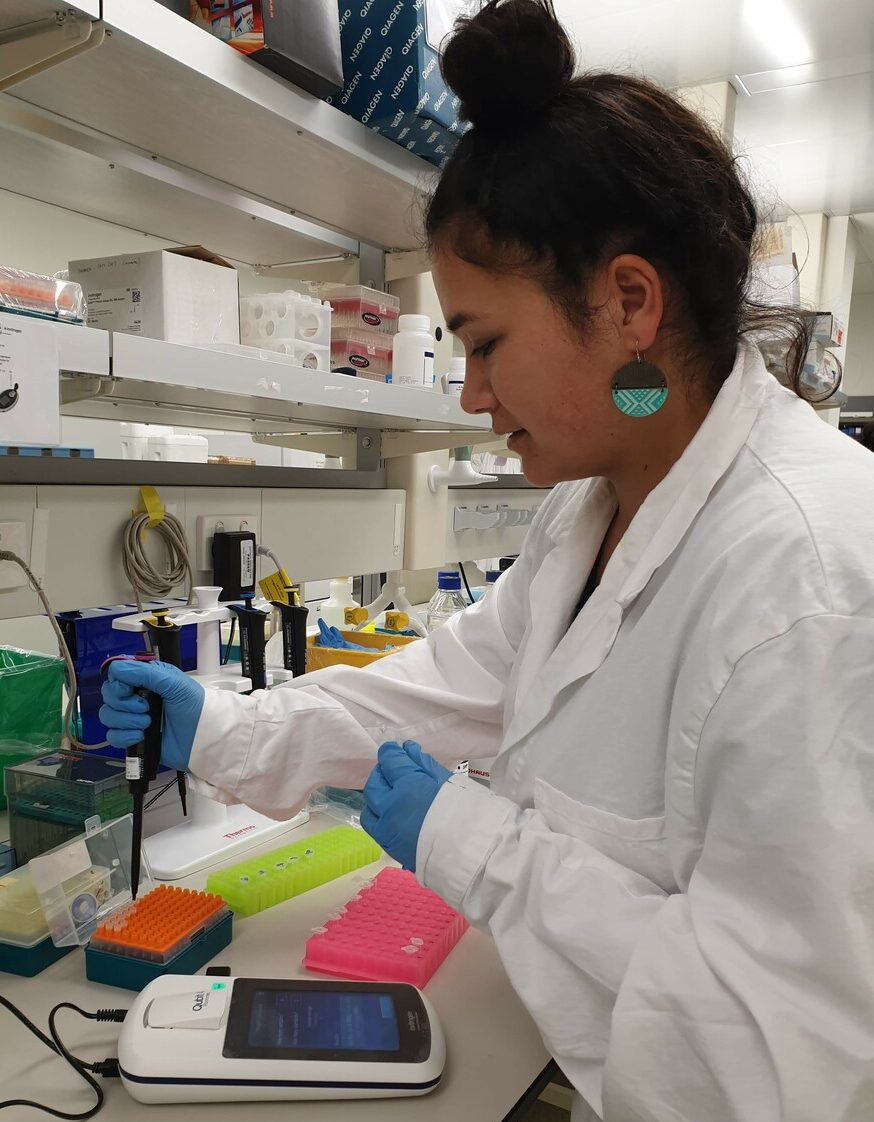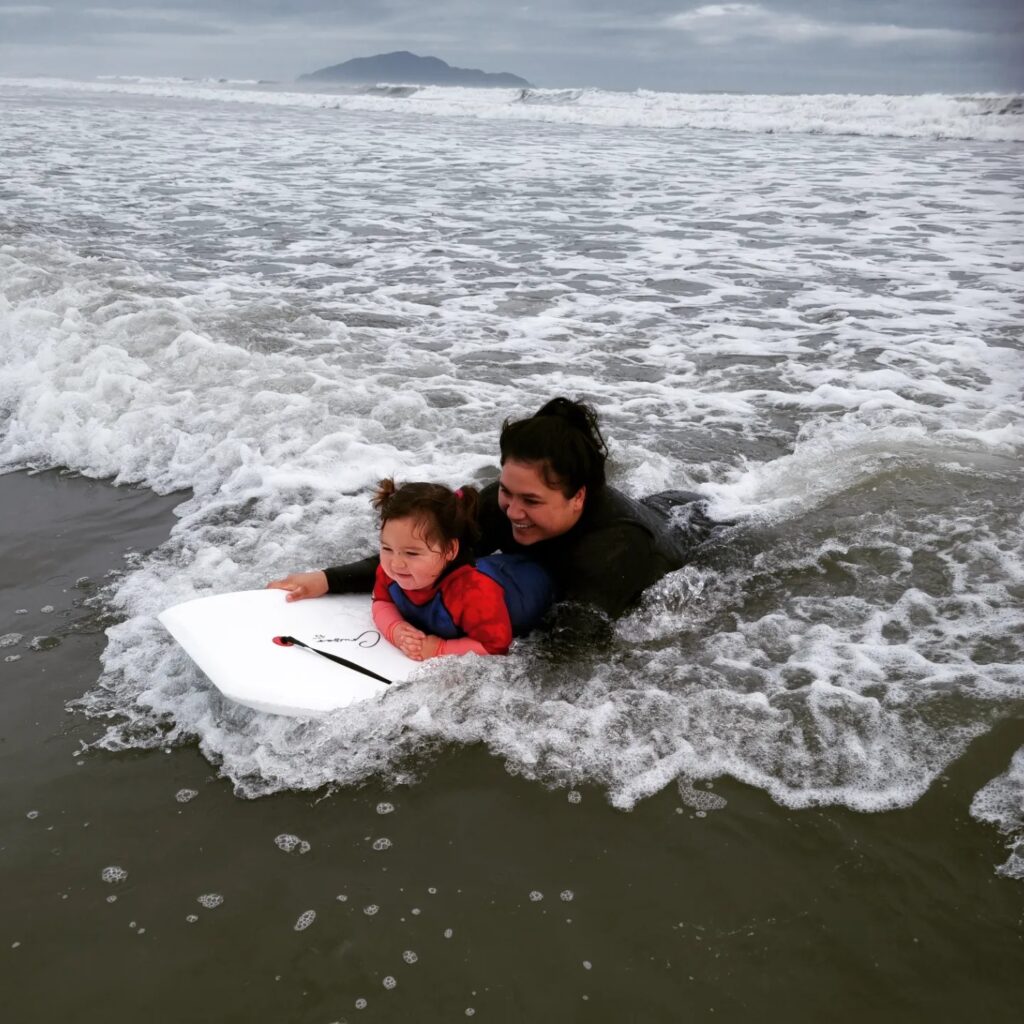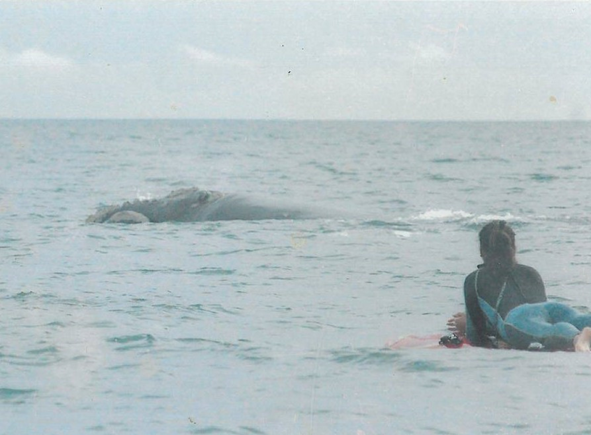
Jordan Aria Housiaux
Tonganui Scholarship Recipient 2022
Jordan (Ngāti Raukawa) is in the final year of her Doctoral studies (PhD in Veterinary Science) and has spent her funding to support wānanga and research regarding tikanga of working with stranded tohorā.
Jordan has been exploring the interface of mātauranga māori and Western science and the tikanga of handling genomic material and generated data from taonga species. Jordan has been able to participate in stranding events, from the preparation phases and protocol design to practical involvement at a stranding, to iwi informed decision-making around next steps and utilising modern science to support further understanding of whakapapa tohorā and their ecology.
Following the hand-in of Jordan’s thesis and on further reflection next year, she hopes to continue her research.
Kaupapa update from Jordan
What were the major outcomes of this kaupapa?
Who did your project involve?
This project has involved three major case studies. One, developing a whale stranding protocol for Ātiawa ki Whakarongotai as recognised and supported by our local Te Papa Atawhai rangers. Two, developing prognostic indicators of survival for stranded pilot whales to inform protocols at mass stranding events. Three, investigate the relatedness of mass stranded pilot whales from strandings across Aotearoa using stored tissue samples and historic stranding data. This case study also involved the development of wānanga informed protocols for working with tissues of taonga species in a lab-based setting.

What were some of the challenges your kaupapa faced during its implementation?
I have just returned from maternity leave following the birth of my second daughter, but I am now back into the thick of writing up.
How did this kaupapa benefit from the Tonganui Scholarship?
The Tonganui funding has provided extensive support to my whānau and myself as I navigate the writing period of my thesis. I was also able to delay a return to full-time work and focus on completing key chapters of my doctoral thesis following the success of the grant.
What are your future plans for this kaupapa?
My aspirations for this kaupapa are to continue to strengthen our connection to our tohorā tipuna through lived practice and wānanga. Whale strandings are often the only opportunity we have to engage in these relationships, however, we can continue to connect with Hinemoana and Tangaroa through swimming, surfing, paddling, and play.




